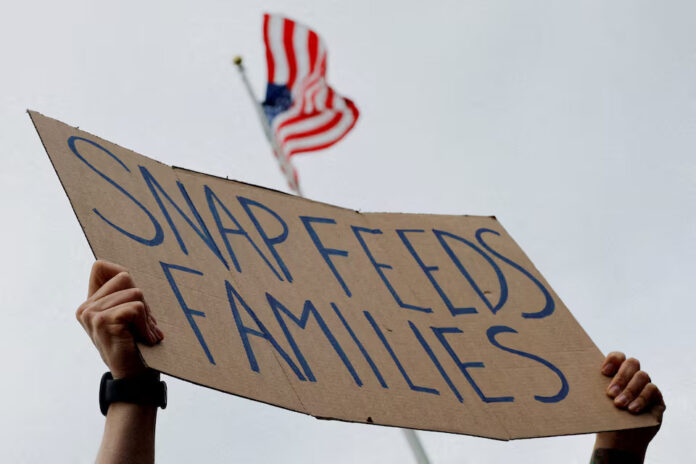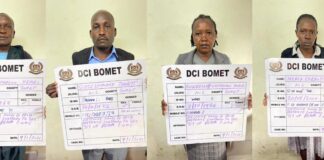
The U.S. Department of Agriculture (USDA) has instructed state governments to reverse any actions taken to issue full food aid benefits to low-income Americans, warning that failure to comply could result in financial penalties.
The directive follows a U.S. Supreme Court order on Friday that allowed the Trump administration to continue withholding $4 billion in Supplemental Nutrition Assistance Program (SNAP) funds pending a lower court ruling.
In a memo released late Saturday, the USDA said states must “immediately undo any steps taken to issue full SNAP benefits for November 2025.”
The agency warned that noncompliance could lead to the “cancellation of the federal share of state administrative costs” and states being held liable for any overpayments.
The dispute centers on SNAP, commonly known as food stamps, which lapsed at the start of November for the first time in its six-decade history due to the ongoing federal government shutdown, now in its 40th day.
Earlier on Friday, the USDA had told states it was preparing to comply with a lower court order requiring full funding of SNAP benefits, prompting several states to begin issuing payments.
But the Supreme Court’s subsequent order effectively reversed that guidance.
Several states, including Massachusetts and New Jersey, criticized the new USDA directive. Massachusetts Governor Maura Healey said her administration would continue fighting to ensure residents receive full benefits.
“If President Trump wants to penalize states for preventing Americans from going hungry, we will see him in court,” Healey said in a statement.
New Jersey officials echoed the criticism, calling the federal government’s actions “shameful” amid a prolonged shutdown that has left millions without vital support.
The legal battle over SNAP funding began after the Trump administration announced in October that the program would lapse on November 1 due to the budget impasse.
Two federal judges ruled on October 31 that the administration must use a $5 billion contingency fund to partially sustain payments, but that amount covers only about half of the program’s monthly cost of $8–9 billion.
On November 6, U.S. District Judge John McConnell ordered the administration to fully fund SNAP benefits for November. The Justice Department appealed the decision, and the Supreme Court’s order now gives the First U.S. Circuit Court of Appeals in Boston more time to consider the case.
As the legal fight continues, nearly 42 million SNAP recipients nationwide face deep uncertainty. Many have turned to food pantries already stretched thin, while others report cutting back on meals or forgoing essential medication to make ends meet.
The USDA has not yet clarified whether its latest directive applies to states planning to use their own funds to cover the benefits gap.
Source: Reuters
Written By Rodney Mbua


















